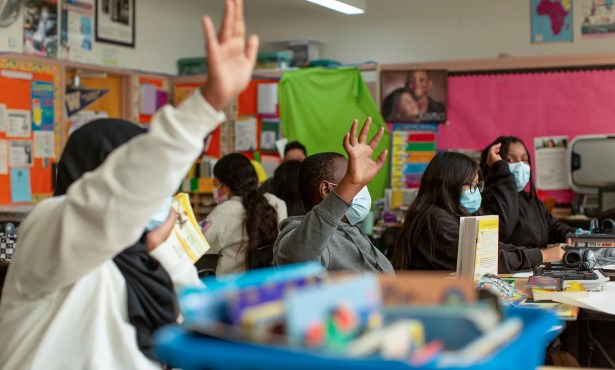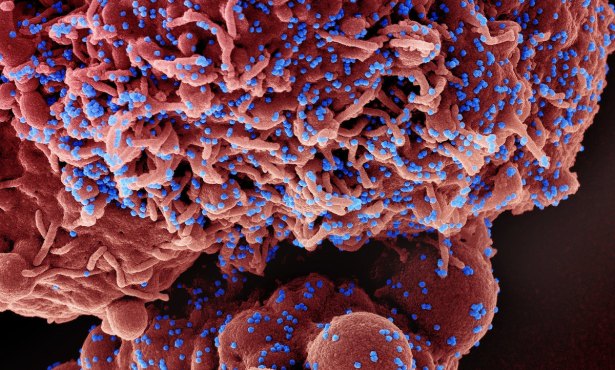Third Inmate Dies as Families Protest Against Lompoc Prison COVID Conditions
Religious Leader Decries Lack of ‘Basic Human Decency’ Among Prison Officials

A third inmate at the federal prison complex in Lompoc has died of COVID-19, according to data published Tuesday on the Bureau of Prisons’ website. The inmate, whose identity was not released, was housed at Federal Correctional Institute Lompoc (FCI Lompoc). The complex’s two other COVID-19 deaths were among inmates at United States Penitentiary Lompoc (USP Lompoc). Both were older with underlying health conditions. Since the start of the outbreak in late March, more than 1,000 prisoners and staff have been infected with coronavirus.
Santa Barbara health officials said they had no information on the most recent death, as the county Coroner’s Bureau “does not have jurisdiction for death investigations that occur within the USP Lompoc facility,” said Sheriff’s Office spokesperson Raquel Zick. “Unfortunately, we are not sure who handles their investigations, so you will have to check with [the Bureau of Prisons].” The Bureau of Prisons (BOP) did not return requests for comment.
The Independent had recently received a Twitter message from Cris Zarm, the ex-wife of a current Lompoc prisoner. Zarm stated inmates had witnessed “a coffin loaded into a black van” on the prison grounds. Zarm said her ex-husband wanted to remain anonymous because correctional officers “actively retaliate against any inmate who’s directly or indirectly providing information to the media.” For the last six weeks, Lompoc authorities have severely curtailed inmate access to phone and email, prompting panic among families wanting to know the health status of their loved ones.
The BOP’s latest coronavirus-related death is the 64th in its facilities, and the disclosure comes just two days after an estimated 100 relatives and supporters staged a Sunday protest outside the Lompoc complex gates. They decried the lack of response by federal authorities to stop the Lompoc outbreak, which grew at one point to become the worst in the country, and they blasted federal officials for failing to provide basic sanitary supplies and quarantine protections for inmates. Many claimed prisoners were being fed rotten food, prevented from showering, and denied basic health care. “They’re sick, and they’re not getting the resources they need to get better,” said organizer Chrissie Rogers from San Bernardino. “You can’t get well in a cell.”
Their complaints echoed those in a lawsuit filed by the ACLU last week, which accused the BOP of violating the Eighth Amendment rights of prisoners against cruel and unusual punishment. The organization detailed an incident in which a sick inmate was denied medical attention for five days until he passed out in his cell from acute respiratory shock. Representative Salud Carbajal and California senators Dianne Feinstein and Kamala Harris have also expressed serious concern with the BOP’s lack of action to shield both inmates and prison staff from the outbreak. The protestors’ main demand was the early release or home confinement of elderly and medically fragile inmates.
According to the BOP’s website, 988 of the 1,069 infected prisoners at the complex are considered “recovered,” though widespread testing has yet to take place at USP Lompoc, where 1,707 inmates live. Carbajal and other legislators continue to push the BOP to implement mass testing there in order to better understand the scope of the outbreak and to prevent staff from further transmitting the virus into their home communities.
During Sunday’s protest, prison officers blocked public access to facilities and staff housing. The California Highway Patrol issued a handful of tickets to participants for driving too slowly on Santa Lucia Canyon Road. After the procession, 50 or so demonstrators gathered at nearby Ryon Park, where Rev. Julia Hamilton addressed the crowd. “This is a crisis of national proportion,” said Hamilton, minister of the Unitarian Society of Santa Barbara. “These are loved ones and human beings who are treated like they’re disposable. Their basic rights are being denied.”
“We’re not asking for the impossible,” she went on. “We’re asking for soap and hot water. We’re asking for a phone call. We’re asking for respect for the families who care about their loved ones, who deserve to know whether they are living or dying. This is not hard. It is not impossible. It just requires a will to make it happen, and the people running this prison have not demonstrated basic human decency to make sure that during this pandemic every single human soul is treated with care.”
This article was underwritten in part by the Mickey Flacks Journalism Fund for Social Justice, a proud, innovative supporter of local news. To make a contribution go to sbcan.org/journalism_fund.



You must be logged in to post a comment.